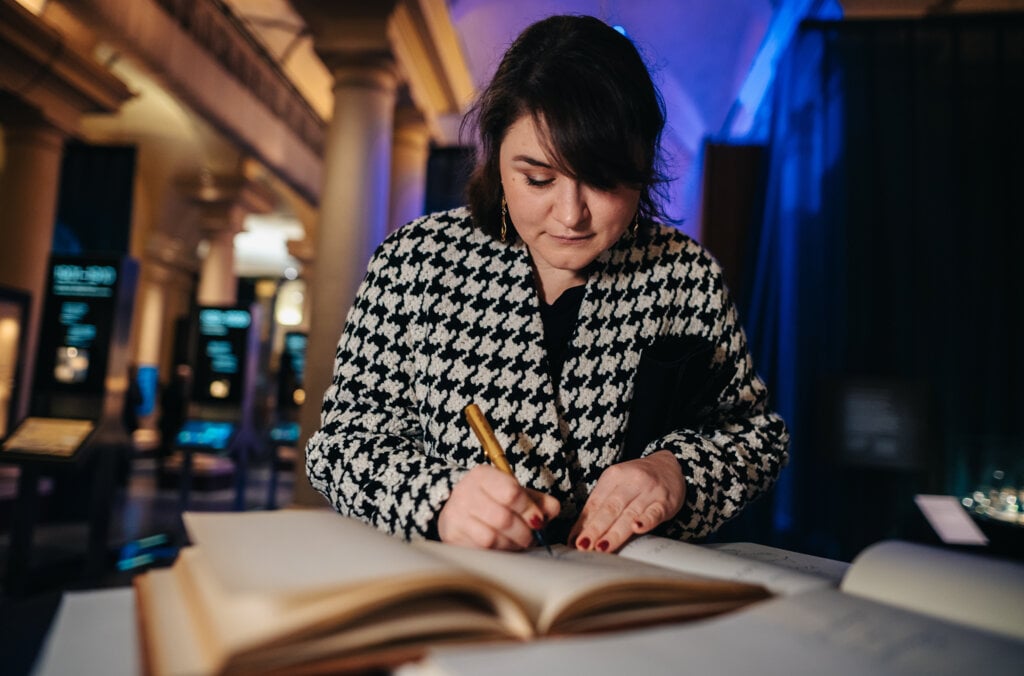Interview with Center for Civil Liberties, December 2022
We spoke to Oleksandra Romantsova, Executive Director of the Center for Civil Liberties, about what ordinary people can do to promote peace and democracy. The interview took place on 12 December 2022 in Stockholm, Sweden, during the Nobel Week.
What does the Nobel Prize mean to your organisation?
The Center of Civil Liberties has been working for 15 years and our main idea is to fight for human right standards and democracy in Ukraine. However, we understood that it was necessary to involve a whole region because human rights is like a level of water – if it is falling somewhere you will have a problem.
Everything that’s going on – like the cutting of human rights in Russian Federation, like the war in Ukraine – for us documenting war crimes shows that international justice needs to answer for what the Russian Federation is doing, to stop this cruel practice. Before Ukraine was Chechnya, Syria, Georgia, Moldova. We feel a responsibility – because we resist, because we prepare and are motivated for that – we can make a historical change. We don’t have a choice because the Russian Federation has stated that we do not exist, Ukraine does not exist. But we choose to exist. We choose to have democratic values. We choose to fight for that. So the Nobel Peace Prize for us shows that human rights is part of the prevention of war. It is part of international security society. It is not time to make compromises for profit and cut human rights because that means that human rights in your country will be in danger soon as well.
For us, this prize gives us a voice. It gives us a possibility to discuss and back human rights like a topic of discussion. It also helps us renovate the system of security in the world because we see that all our international humanitarian law, justice law, criminal law, all of them are not useable during a war in which information starts to become like a tool in the war, when economics are taking part in the war and when some military members think that committing war crimes is a good strategy in the war. We want to make a change and the Nobel Peace Prize shows us that the committee supports our plans.

How did it feel when you were awarded the prize?
I was the person that received the call from the Olav at the peace committee. First of all I was shocked. I said, “Okay, it is incredible!” At that specific moment I was just thinking what just happened? After this I was laughing and crying because all of a sudden in dangerous and really dark times we had such bright news. Such bright support. It makes you feel like what you are doing has the possibility of changing the world – which also is our main goal.
What can ordinary people do to spread your message and work?
Ordinary people are the biggest power in the world. A lot of people don’t think that ordinary people without a position or power can make a difference. But Ukrainians show that ordinary people can create resistance, support our army and help win this war. Ordinary people are a huge power. So they can think about what they can do, how they can support each civil society organisation or create new ones. Just use your power! Use your power of joining, of solidarity and you can change the world.
This interview has been edited for length and clarity.
First published: March 2022
Nobel Prizes and laureates
Six prizes were awarded for achievements that have conferred the greatest benefit to humankind. The 12 laureates' work and discoveries range from proteins' structures and machine learning to fighting for a world free of nuclear weapons.
See them all presented here.
